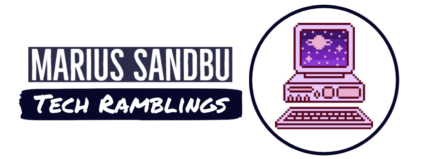This is a discussion that I’ve had a couple of times at work already, and especially now with the latest acquisitions it has been a hot topic. Also what I’ve seen in the community is well, I see this as an interesting move from VMware.
NOTE: This is not a technical blogpost, but my personal view on the changes in VMware, and just stating my opinion.
Now rewind back to, 2012 I remember it quite well when Microsoft was really pushing Hyper-V and System Center to the market and trying to position itself as a the virtualization champion. Of course Microsoft stopped the intensive push on Hyper-V and System Center, and started to moved more and more focus over to their Cloud Services. Now lack in 2016, Gartner stated that VMware was the market leader for virtualization (NOTE: This was the last one that Gartner made for server virtualization infrastructure)

Also Dell together with VMware also been working heavily of the last years with their HCI offering and have also been quite successfull there as well, with their VSAN offering and they also made some large improvements into their software defined networking stack with NSX. So there is no denying that VMware has been the king of virtualized dataceters.

Of course nothing lasts for ever, and the trend I see now is that: Many large customers are replacing their existing legacy datacenters with 1: Modern HCI based infrastructure in combation with cloud based services or 2: All Cloud based services. The last year VMware has been acquiring a lot of different companies, but it gives some insight where VMware is really focusing their development moving forward.
- Cloudvelox (Cloud migration/mobility between multi-cloud)
- CloudHealth (Multi-cloud cloud cost, usage, security, and governance)
- CloudCoreo (Now VMware Secure State) Public Cloud Security Score)
- Carbon Black (Endpoint and Datacenter protection)
- BitFusion (Elastic AI Infrastructure for Multi-Cloud)
- Avi Networks (Next Generation ADC with Multi-Cloud support)
- Bitnami (Multi-cloud application catalogue and Kubernetes Application Package)
- Heptio (Multi Cloud Kubernetes Platform, now part of VMware Essential PKS)
- Pivotal (Multicloud PaaS platform)
- Uhana (Deep learning and real-time AI in carrier networks and application)
- Veriflow (Advance Network Monitoring)
- Aetherpal (Remote support solution)
Now looking at the different companies that VMware has aquired, I see a couple of trends.
- VMware is moving upwards in the service stack, focusing now on platform services such as focusing into native PaaS services such as Cloudfoundry and Kubernetes offering. Also moving more into being its own service provider.
- VMware is focusing on multi-cloud approach, and building tools on top to handle security, compliance, cost.
- VMware is building an extensive network stack, combining their existing networking stack (SD-WAN, NSX) with Service Mesh and advanced application delivery features with AVI.
- VMware is expanding into migration/mobility with HCX which is again using NSX underneath to handle IP-to-IP translation.
- VMware is seeing that future is going to be a lot of advanced hybrid networking scenarioes and investing into more network operations and
- VMware is expanding their EUC vision to become more security centric and getting carbon black and combining this with for instance Velocloud to provide more in-depth information and visibility and give them a good scenario to provide SaaS based security.
Also in combination with this VMware has also been further developing their own cloud services.
- Cloud Assembly
- Cloud Service Broker
- Cloud Automation
- Wavefront
- NSX Cloud
- SD-WAN Velocloud
- Network Insight
- VMware Cloud PKS
- VMware HCX
Now this new services are also about 1: Multi-cloud automation 2: Multi-cloud network scenarioes. 3: Multi-Cloud mobility and being able to migrate worksloads between the hyperscalers. In addtion now being working with AWS on their VMware on AWS Partnership and lastly now coming with support with Google Cloud and Microsoft Azure running Cloud Foundation using technology from Cloudsimple.
VMware are not focusing on building their own public cloud solution and competing with Google, AWS and Azure. Instead they are building services on top to provide multi-cloud Automation, Security, Networking and Mobility.
Looking forward I see that VMware is going to go from being the king of virtualized datacenters to becoming the king of multi-cloud, it just remains to see how well they manage to integrate this large ecosystem of products and being able to provide this as services and still be able to expand the capabilities of these products to stay ahead of the hyperscalers.
